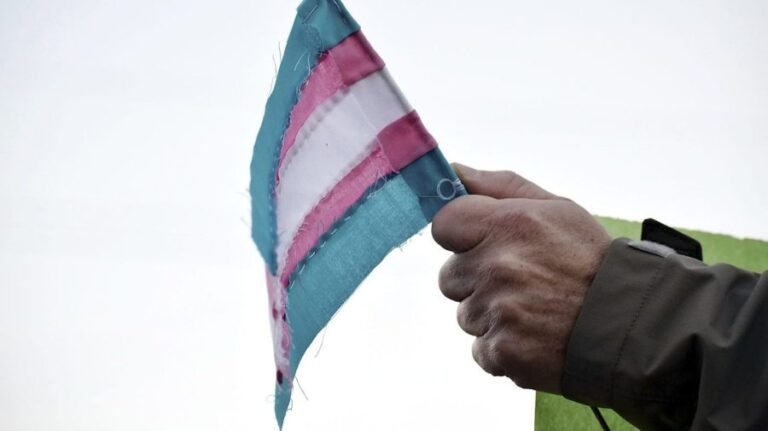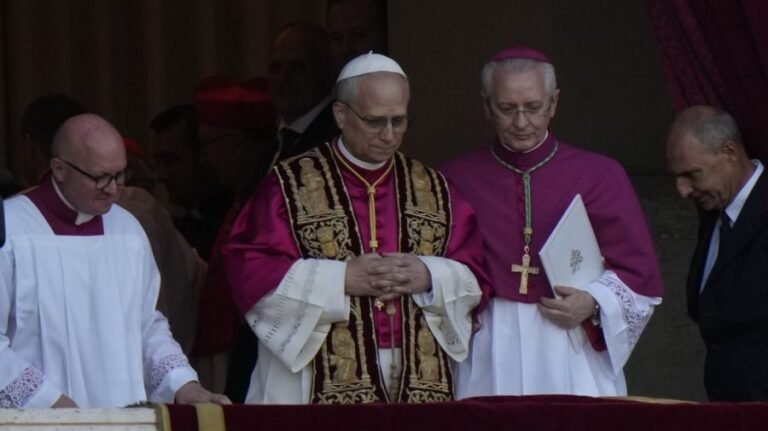
Mr. President! You talked about some of the violence that’s been going on at dealerships,” a reporter yelled to President Trump as he stood next to Elon Musk and a Tesla parked near the White House lawn earlier this month.
“Some say they should be labeled domestic terrorists.”
“I’ll do that,” Trump interjected. “We’re going to stop it if we catch anybody doing it because they’re harming a great American company.”
Days later, Trump’s FBI would launch a task force dedicated to investigating and referring for prosecution suspects in a string of incidents protesting Musk at Tesla dealerships across the country.
It was one of several instances during the first three months of Trump’s second term in which a shouted question or suggestion from a media member has resulted in direct action from the president.
It’s a trend several reporters in the Washington press corps and national political insiders told The Hill this week underscores Trump’s intense focus on press coverage – and how the coverage can lead to new efforts by Trump to take actions that will create additional headlines – and new news cycles.
“It’s getting to the point where a reporter can just offhandedly mention something to him on camera and start an entire news cycle off of it,” said one White House correspondent. “It’s unclear if Trump is actually unaware of some of this stuff beforehand or is just professing ignorance for tactical reasons.”
Trump, a news junkie, regularly shares feedback on cable news segments and front page stories in public statements, social media posts and on-camera conversations with top aides.
The president in recent weeks has made a habit of asking which outlet a reporter works for before deciding whether to accept the question. If the reporter works for an outlet Trump feels has treated him unfairly, get ready to be ignored or insulted.
But increasingly, questions from friendlier outlets that get shouted in Trump’s direction have more than just caught the president’s eye – they’ve led him to act.
“The astronauts that you just helped save from space, they didn’t get any overtime pay,” Fox News correspondent Peter Doocy told the president during an Oval Office gaggle last week. “Is there anything the administration can do to make them whole?”
Trump, seemingly amused by Doocy, responded with a smirk and said, “nobody’s ever mentioned this to me!”
“If I have to, I’ll pay it out of my own pocket, okay?” he told Doocy. “I’ll get it for them … I like that. I’ll get it done.”
It was unclear as of Friday afternoon if Trump had made good on his promise to pay the astronauts. The White House did not immediately respond to The Hill’s inquiry seeking confirmation.
The Trump administration also earlier this month pulled Secret Service protection for Hunter Biden, the former president’s son, after Trump was asked if former government officials and their families needed such security privileges.
“What he sees on television and what he’s asked by the press definitely influences how he responds to things … and how he makes decisions,” said Peter Loge, a political scientist at George Washington University. “He’s defined himself by his own television and popular persona for decades. He thinks in media terms first, like a television producer who translates television into policy.”
Media outlets hoping to capitalize on a “Trump bump” in ratings and audience to dedicating more resources and airtime to the new administration.
Some of the “new media” faces on the White House grounds have made regular habit of asking out-of-the-box or partisan questions to get a response from Trump.
Many of these reporters, journalists at more mainstream outlets say, are eager to create a soundbite or video clip of themselves posing a question to the commander in chief and eliciting a response or promise to act.
“It kind of seems like they’re testing the limits of what he’ll respond to,” one national Republican strategist told The Hill. “And on Trump’s side, he’s using the answer to the shouted question as a sort of testing ground for some of these decisions might land in terms of reaction form the public.”
Other observers suggested West Wing staff could be planting or at least suggesting questions to members of the press pool in an attempt to get an issue to the front of Trump’s mind.
Doocy, during an interview earlier this year, noted background conversations with Biden’s White House staff was essential to his reporting, which he said sought to pose “different” questions than the “singular focus” of some press briefings.
The White House declined to comment.
“I’ve always found if you put on a smile and ask politely, you’re going to get a response from him,” another White House correspondent told The Hill. “It seems a lot of reporters are taking that approach given the access drama that is unfolding in the middle of all of this.”
The White House is locked in a legal battle with the Associated Press over its decision to ban the wire service from key West Wing spaces over its “Gulf of America” stylebook policy.
Getting Trump’s attention can be a fickle game, those who have worked around the president say, and sometimes the best way to get him to listen is through the mouth of a reporter.
“He tends to react quickly to anything that touches on his brand, or legacy – especially now that he’s in his second term,” the Republican strategist said. “Especially if the framing is somewhat critical or casts doubt on his authority or popularity – those tend to rise to the top of his radar.”


